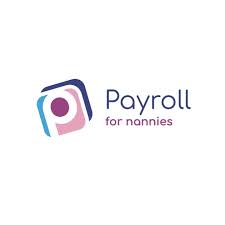This article examines some of the challenges facing parents in the twenty first century and suggests ways in which we can steer a middle ground, providing our children with a loving upbringing while making time for ourselves as well.
Parents under pressure
The byword these days is “pressure”: pressure to be a top parent, pressure to have your children do well at everything. Parents who can afford to do so attend baby yoga and music classes with their newborns. Primary school children attend extra tutorial classes to have the edge on their classmates or simply because working parents cannot spare the time to give the extra help needed.
Parents matter too
And while it is a good thing that there are more activities for children from babyhood upwards, it also puts parents under pressure to have their children do as much as everyone else’s. The Irish writer Adam Brophy makes an interesting point in a newspaper article entitled “It’s not just about the kids, we matter too”, when he says: “When did we come to the conclusion that the development of our children’s skill set was the be-all of our existence? What message does it send to drive them from one class or training session to another when all we can manage is to spark the car’s ignition?” It’s not a point of view that we hear voiced very often but doesn’t it strike a chord with many of us?
Previous generations didn’t do as much worrying about their children’s academic or sporting achievements. People didn’t have as much disposal income as parents today and moreover, children weren’t given as much importance as they are now. Twenty-first century parents would find it difficult to envisage a world where children were expected to be “seen and not heard”. Needless to say that particular perspective on raising children isn’t one we’re advocating, however, it’s worth reflecting on the fact that as we have become better off as a society, we are giving a lot more to our children, both in emotional and material terms and often feeling under greater pressure as a result.
The extreme focus on early childhood
A recent conference at the University of Kent examined what organisers called “the extreme focus on early childhood”. Academics argued that parents of babies and toddlers, mothers in particular, are subject to ridiculous levels of pressures to “get things right” which leads to “unwarranted anxieties and guild”. Led by John Bruer, author of The Myth of the First Three Years, they said claims of the importance of parental connection in the early years have been hyped and that social policy focusing on the parent-child bond is “a waste of resources”. Parents, and especially mothers, will more than likely welcome the fact that they need not feel guilty about having to leave their child in the care of someone else while they work; nor will they “fail” to give their child a head start if they don’t sign up for various baby and toddler classes.
UNICEF study
When a recent UNICEF study found that British parents tended to overload their children with material goods to make up for not spending enough time with them, the journalist and broadcaster Mariella Fostrupp wrote in The Observer: “No offence to Unicef but a UK riddled with shopaholic parents trying to assuage their consciences with expensive toys for their unloved children is one I don’t recognise. Most people I see are struggling to pay their utility bills let alone splash out on Xboxes. The vast majority are simply battling to make ends meet”. And she rubbished the notion that our consumer culture was to blame for parents’ neglect of their children in this way: “Our entire financial system is built on our ability to work and consume to keep the economy afloat. And now we’re in the wrong for buying the odd toy for our kids?”
A good enough parent
To conclude, parents can only do their best. And to borrow the paediatrician Donald Winnicott’s phrase, being a “good enough” parent really is “good enough”. Rather than placing undue pressure on ourselves – and our children – to “get it right”, we can be good parents by spending time with them and allowing them room to develop their own interests. And by the same token we need to allow time for ourselves – as individuals and as partners in a relationship. That’s a topic for another day!







